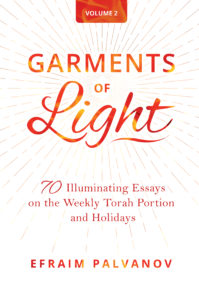In this week’s parasha, Pinchas, we read about the righteous daughters of Tzelofchad. Recall that the five daughters (Machlah, Noa, Haglah, Milkah, and Tirzah) had no male siblings, and their father had passed away, so they inquired about their inheritance. Are daughters allowed to inherit? It might sound like a straight-forward “yes”, but it was much more complicated in ancient Israel. Continue reading
Tag Archives: Feminism
On That Controversial Blessing of “Not Making Me a Woman”
 In this week’s parasha, Pinchas, we read about the five daughters of Tzlafchad, named Machlah, Noa, Chaglah, Milkah, and Tirzah. After the partitioning of the Land of Israel, the daughters approached Moses with a complaint. Because their family only has girls, and no boys, the daughters worried about what would happen to their father’s land and inheritance. Moses took the case up to God, who answered that daughters are able to inherit just as sons are in such situations. This is one example in the Torah of what might today be described as “gender equality”. The Torah (and Judaism more broadly) is sometimes criticized for its apparent gender inequality. One of the most common points of contention today is that blessing in Birkot HaShachar where men thank God for “not making me a woman”. Traditionally, women recite the blessing that thanks God “for making me kirtzono”, loosely translated as “like His will” Where did these blessings come from and what do they really mean?
In this week’s parasha, Pinchas, we read about the five daughters of Tzlafchad, named Machlah, Noa, Chaglah, Milkah, and Tirzah. After the partitioning of the Land of Israel, the daughters approached Moses with a complaint. Because their family only has girls, and no boys, the daughters worried about what would happen to their father’s land and inheritance. Moses took the case up to God, who answered that daughters are able to inherit just as sons are in such situations. This is one example in the Torah of what might today be described as “gender equality”. The Torah (and Judaism more broadly) is sometimes criticized for its apparent gender inequality. One of the most common points of contention today is that blessing in Birkot HaShachar where men thank God for “not making me a woman”. Traditionally, women recite the blessing that thanks God “for making me kirtzono”, loosely translated as “like His will” Where did these blessings come from and what do they really mean?
Do Men Have More Mitzvot than Women?
This week’s parasha, Tazria, begins by describing the rituals that a mother must perform upon giving birth to a new child. If the child is male, the mother is considered “impure” for seven days following her delivery, and then spends an additional 33 days in purification. For a female child, the durations are doubled, with the mother “impure” for 14 days, and purifying for another 66 days. Why is the duration of purification for a female doubly longer than a male?
The apocryphal Book of Jubilees (3:8) suggests an interesting idea: Adam was made on the Sixth Day of Creation but, apparently, Eve wasn’t made until a whole week after. This is why a mother of a male child is impure for a week, but a mother of a female child for two weeks! Jubilees also holds that Adam was only brought into Eden forty days after being created, while Eve was brought in after eighty days. This is why a mother of a male child needs a total of forty days to purify, and a mother of a female child needs eighty days. Of course, Rabbinic tradition rejects the Book of Jubilees, and it is accepted that Adam and Eve were both created on the Sixth Day, and were in Eden from the beginning.
Commenting on this week’s parasha, the Zohar (III, 43b) states that it takes a soul 33 days to settle in the body. This is primarily referring to the new soul that enters a newborn baby, as it takes time for the ethereal soul to get used to its descent into a physical world. The Zohar doesn’t add too much more on this, but we might assume that, based on the words of the Torah, it takes a male soul 33 days to settle, and a female soul 66 days to settle. At the same time, the Zohar may be referring to the soul of the mother, too, as she is the one that spends 33 or 66 days in purification. As we’ve explained in the past, the severing of the mother’s direct connection to her child distresses her soul for 33 or 66 days following childbirth.
Whatever the case, the implication is that a female soul is somehow greater than a male soul. It has more spiritual power, taking longer to settle. The notion that female souls are greater is found throughout Jewish texts, especially mystical ones. Sefer HaBahir, one of the most ancient Kabbalistic texts, states that the female soul is the most beautiful of all, and an aspect of the Shekhinah, the Divine Presence (chs. 173-175). It explicitly makes clear that life on Earth would be impossible without the life-giving mother, who in this regard is much closer to God.
On that note, it has been said that God created the world sequentially from simple to complex, starting with the basic elements: light, air, water, earth; progressing to plants, then simple animals, then mammals, then man, and finally woman. The woman is the last of God’s creation, and therefore the most intricate and the most refined. It may be because of this that the Arizal taught that while male souls typically reincarnate to rectify themselves, female souls rarely if ever reincarnate at all (Sha’ar HaGilgulim, ch. 9).
It is important to mention here that we are speaking of female souls, not necessary to all women. The Arizal (as well as the Zohar cited above) speak of the possibility of female souls in male bodies, or male souls in female bodies. And it should also be mentioned that this does not necessarily affect the body’s sexuality. A “female” soul in a male body can still very much be a heterosexual male, and vice versa. (For more on this, see Rav Yitzchak Ginsburgh’s lecture here on the female soul of the forefather Isaac, as well as the prophets Samuel, Jonah, and Habakkuk.)
There are a number of consequences to the greater souls of females. For one, it gives them binah yeterah, an “extra understanding” sometimes referred to as “women’s intuition” (Niddah 45b). This is one reason why the women of the Exodus generation, for example, did not participate in the sin of the Golden Calf, nor the sin of the Spies. In fact, the Kli Yakar (Rabbi Shlomo Ephraim Luntschitz, 1550-1619, on Numbers 13:2) states that, had Moses sent female spies, there would have been no problem at all!
On the other hand, a more elevated soul and an extra depth of understanding means a greater sensitivity to the world, which makes women generally less prone to violence and drug abuse, but significantly more prone to depression and anxiety. The greater female soul has the amazing potential to bring life, yet simultaneously (to balance the equation) the potential for severe destruction, “more bitter than death”, to borrow from King Solomon in Kohelet 7:26. This is symbolically reflected in the menstrual cycle, where a lack of conception of life necessarily results in the shedding of blood, a “minor death” that is then rectified in the living waters of the mikveh.
Finally, a greater soul means that women require slightly less mitzvot than men. After all, the “mitzvot were given only in order that human beings might be purified by them… their purpose is to refine…” (Beresheet Rabbah 44:1) A more refined female soul does not need the same mitzvot that a male soul does. Unfortunately, this has sometimes been a point of contention in modern times. Yet, upon closer examination, we see that the differences in mitzvot between men and women are actually minimal and, contrary to the general belief, there is a perfect balance between those mitzvot done exclusively by men and those done exclusively by women.
“Time-Bound” Mitzvot?
The general rule is that, at least in principle, women are exempt from any mitzvah that can only be done at a particular time. This includes mitzvot like prayer, tefillin, and tzitzit. However, in practical terms we see that this “rule” isn’t really a thing, and there are many time-bound mitzvot that women are obligated in. For example,
The above is an excerpt from Garments of Light, Volume Two. To continue reading, get the book here!


